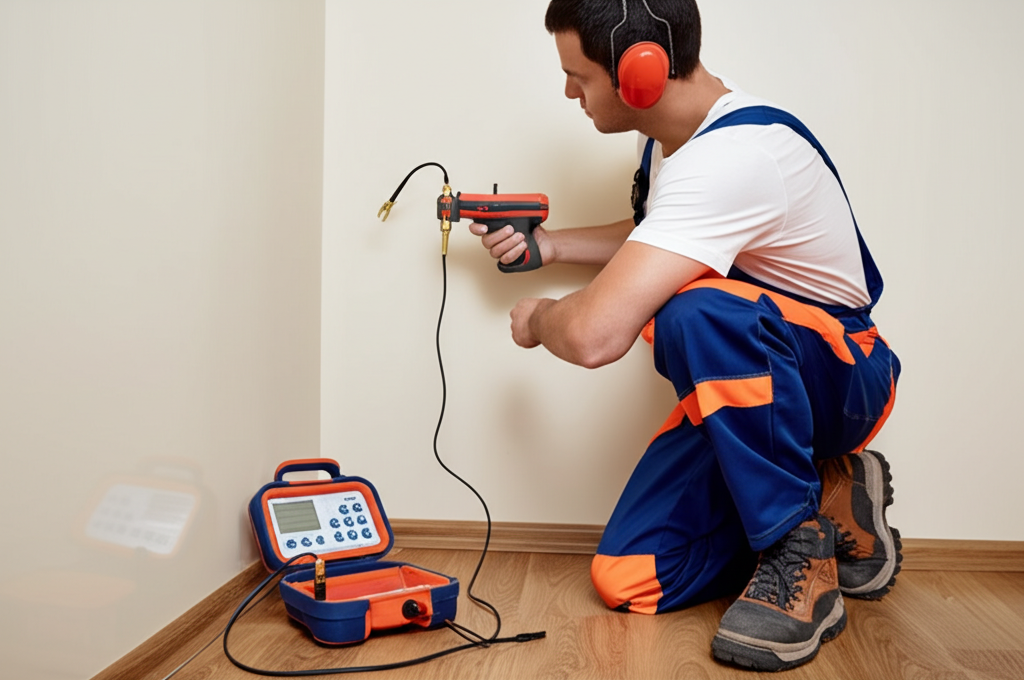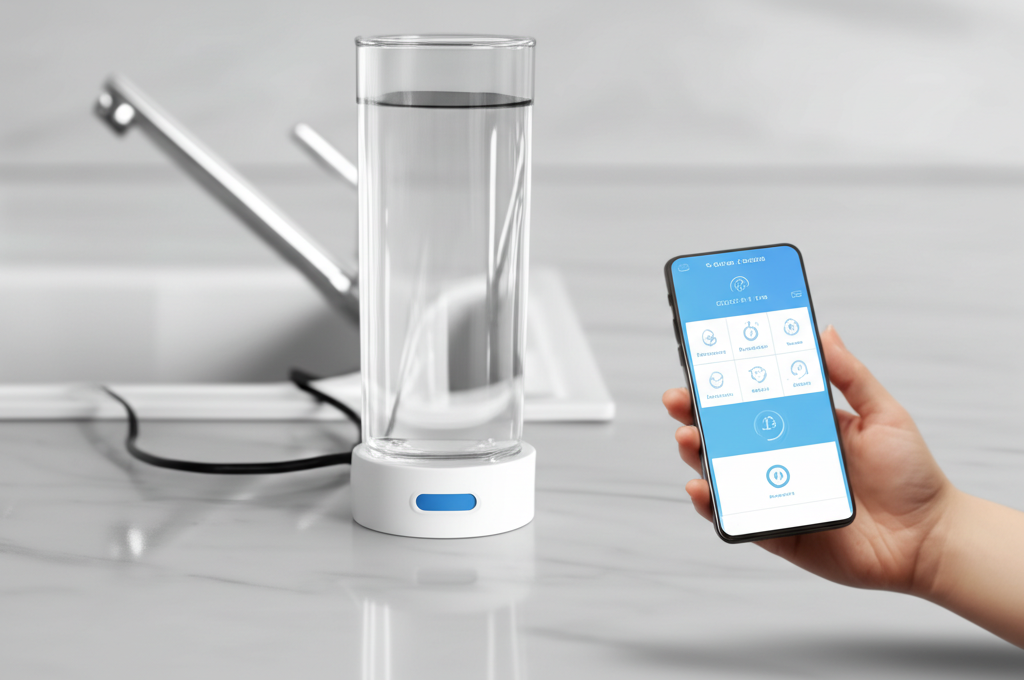Water conservation is becoming increasingly important in Atlanta and throughout Georgia. As our population grows and climate patterns change, implementing effective water conservation strategies is essential for both environmental sustainability and managing utility costs.
In this guide, we'll explore practical water conservation tips specifically tailored for Atlanta residents, taking into account our unique climate and water usage patterns.
Why Water Conservation Matters in Atlanta
Atlanta has faced several significant drought periods over the past decades, highlighting the importance of responsible water usage. Despite being in a relatively water-rich region, our growing population puts increasing demands on local water resources. Additionally, conserving water:
- Reduces your monthly utility bills
- Decreases energy usage associated with water heating and pumping
- Helps prevent water shortages during drought conditions
- Reduces strain on municipal water treatment facilities
- Helps protect local rivers, lakes, and groundwater sources

Indoor Water Conservation Tips
1. Fix Leaks Promptly
Even small leaks can waste significant amounts of water over time. A faucet dripping at one drop per second wastes approximately 3,000 gallons per year. Check regularly for:
- Dripping faucets and showerheads
- Running toilets
- Leaking water heaters
- Damp spots under sinks or near appliances
2. Upgrade to Water-Efficient Fixtures
Modern water-efficient fixtures can dramatically reduce your water usage without sacrificing performance:
- Install low-flow showerheads (using less than 2.0 gallons per minute) to save up to 2,700 gallons annually
- Replace older toilets with WaterSense-labeled models that use 1.28 gallons per flush or less, saving up to 16,500 gallons annually
- Install faucet aerators to reduce flow while maintaining pressure
3. Optimize Appliance Usage
Make the most efficient use of water-consuming appliances:
- Only run dishwashers and washing machines with full loads
- Consider upgrading to ENERGY STAR certified appliances, which use 25% less energy and 33% less water than standard models
- Use the appropriate water level and cycle settings on your washing machine based on load size and soil level

4. Change Daily Habits
Small changes in your daily routine can add up to significant water savings:
- Turn off the tap while brushing teeth or shaving (saves up to 8 gallons per day)
- Take shorter showers (aim for 5 minutes or less)
- Fill the sink basin when washing dishes by hand rather than letting the water run continuously
- Keep a pitcher of drinking water in the refrigerator instead of running the tap until it's cold
- Thaw frozen foods in the refrigerator instead of using running water
Outdoor Water Conservation Tips
1. Smart Landscaping
Atlanta's climate is ideal for many native and drought-resistant plants that require minimal watering once established:
- Consider xeriscaping with native Georgia plants like Black-eyed Susan, Purple Coneflower, and Butterfly Weed
- Group plants with similar water needs together
- Reduce lawn areas, which typically require more water than native plant gardens
- Add mulch around plants to retain moisture and reduce evaporation
2. Efficient Irrigation
If you use an irrigation system:
- Water early in the morning (before 10 AM) to minimize evaporation and fungal growth
- Install a smart irrigation controller that adjusts watering based on weather conditions
- Use drip irrigation for gardens and flower beds to deliver water directly to plant roots
- Adjust sprinklers to avoid watering sidewalks, driveways, and streets
- Follow Atlanta's watering restrictions during drought conditions

3. Rainwater Harvesting
Atlanta receives an average of 49.7 inches of rainfall annually, making rainwater harvesting an excellent conservation strategy:
- Install rain barrels to collect water from downspouts
- Use collected rainwater for gardens, potted plants, and lawn watering
- Consider a larger rainwater harvesting system for significant outdoor water usage
- Implement rain gardens to capture runoff and allow it to slowly infiltrate into the ground
4. Car Washing and Outdoor Cleaning
Be mindful of water usage during outdoor cleaning activities:
- Use a commercial car wash that recycles water instead of washing at home
- If washing at home, use a bucket and sponge instead of a running hose
- Use a broom instead of a hose to clean driveways, sidewalks, and patios
- If you must use a hose, attach a shut-off nozzle to prevent water from flowing when not in use
Seasonal Water Conservation Tips for Atlanta
Spring (March-May)
- Check irrigation systems for leaks and repair them before the hot season begins
- Install rain barrels to capture spring rainfall
- Plant drought-resistant native species at the beginning of the growing season
- Apply mulch to garden beds to retain moisture as temperatures begin to rise
Summer (June-August)
- Follow Atlanta's odd-even watering schedule during peak summer months
- Water lawns deeply but infrequently to encourage deep root growth
- Set mower blades higher (3-4 inches) to shade grass roots and reduce evaporation
- Check for and repair any leaks in outdoor faucets, pipes, and hoses
Fall (September-November)
- Reduce irrigation as temperatures cool and rainfall increases
- Winterize outdoor faucets and irrigation systems before first freeze
- Plant trees and shrubs in fall to establish roots during cooler months
- Collect fallen leaves to use as mulch in garden beds
Winter (December-February)
- Insulate pipes to prevent freezing and potential bursts
- Fix indoor leaks while outdoor gardening activities are minimal
- Plan water-efficient landscape improvements for the coming year
- Consider a home water audit to identify conservation opportunities
Technology to Help Conserve Water
Modern technology offers several tools to help Atlanta residents monitor and reduce their water usage:
- Smart water monitors: Devices that attach to your water meter or main water line to track usage and detect leaks in real-time
- Smart irrigation controllers: Systems that adjust watering schedules based on weather forecasts, soil moisture, and evaporation rates
- Shower timers: Simple devices that help family members be mindful of shower duration
- Faucet sensors: Motion-activated faucets that prevent water from running when not in use
- Toilet leak detectors: Tablets or electronic devices that can identify silent toilet leaks
Community Water Conservation Efforts
Individual efforts are important, but community-wide initiatives can have an even greater impact:
- Participate in Atlanta's water conservation programs and rebates
- Report water main breaks and leaks in public areas to Atlanta Watershed Management
- Support local policies that promote water conservation and sustainable water management
- Educate neighbors and community members about the importance of water conservation in the Atlanta region
Conclusion
Water conservation is not just about saving money—it's about ensuring a sustainable future for Atlanta. By implementing these water conservation tips, you can make a significant difference in preserving our valuable water resources while also reducing your utility bills.
At Drip Scout Water Leak Detection, we're committed to helping Atlanta residents use water efficiently and prevent waste through leaks. If you suspect you have a leak or would like a professional assessment of your home's water efficiency, contact our team today.


